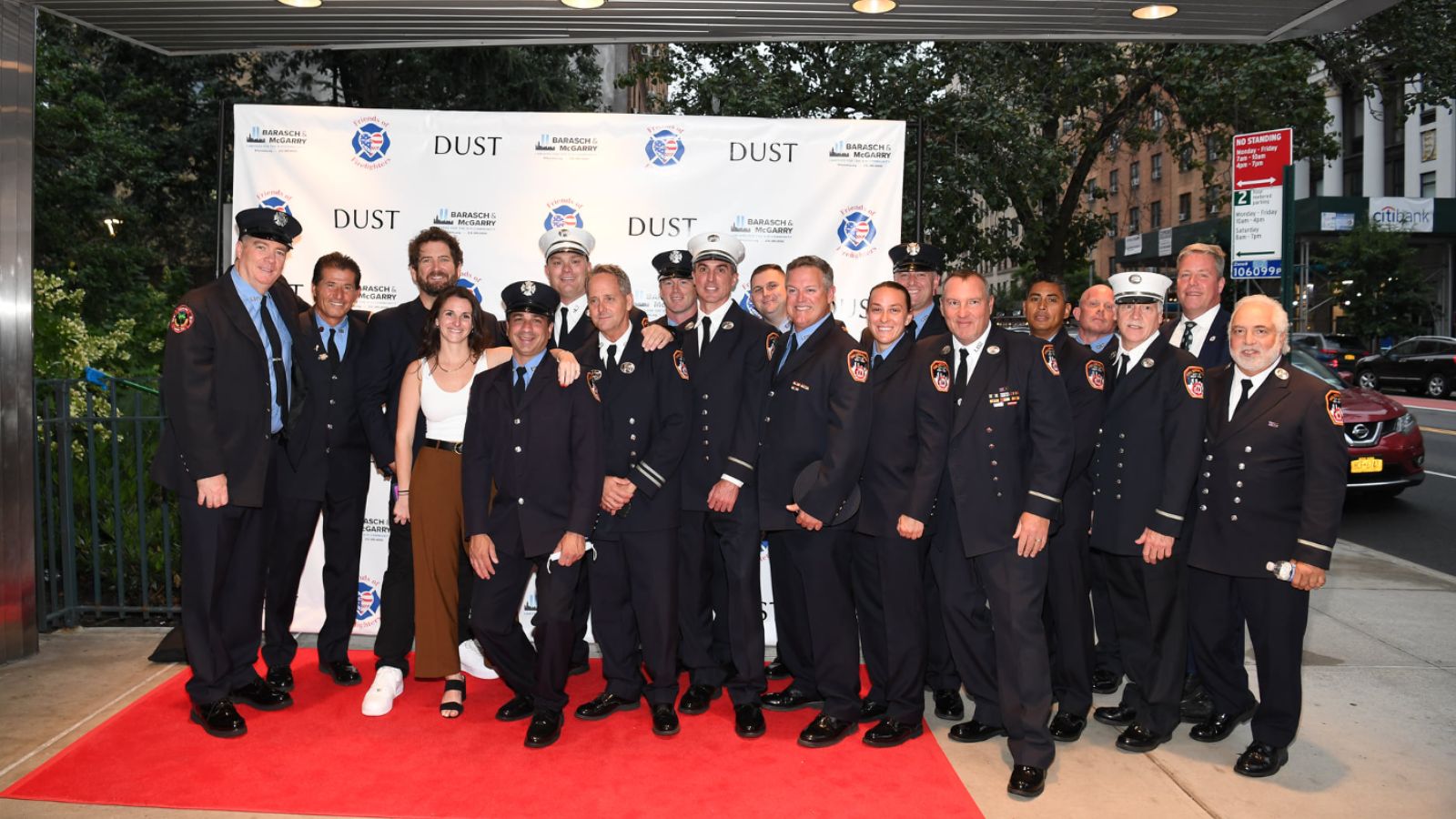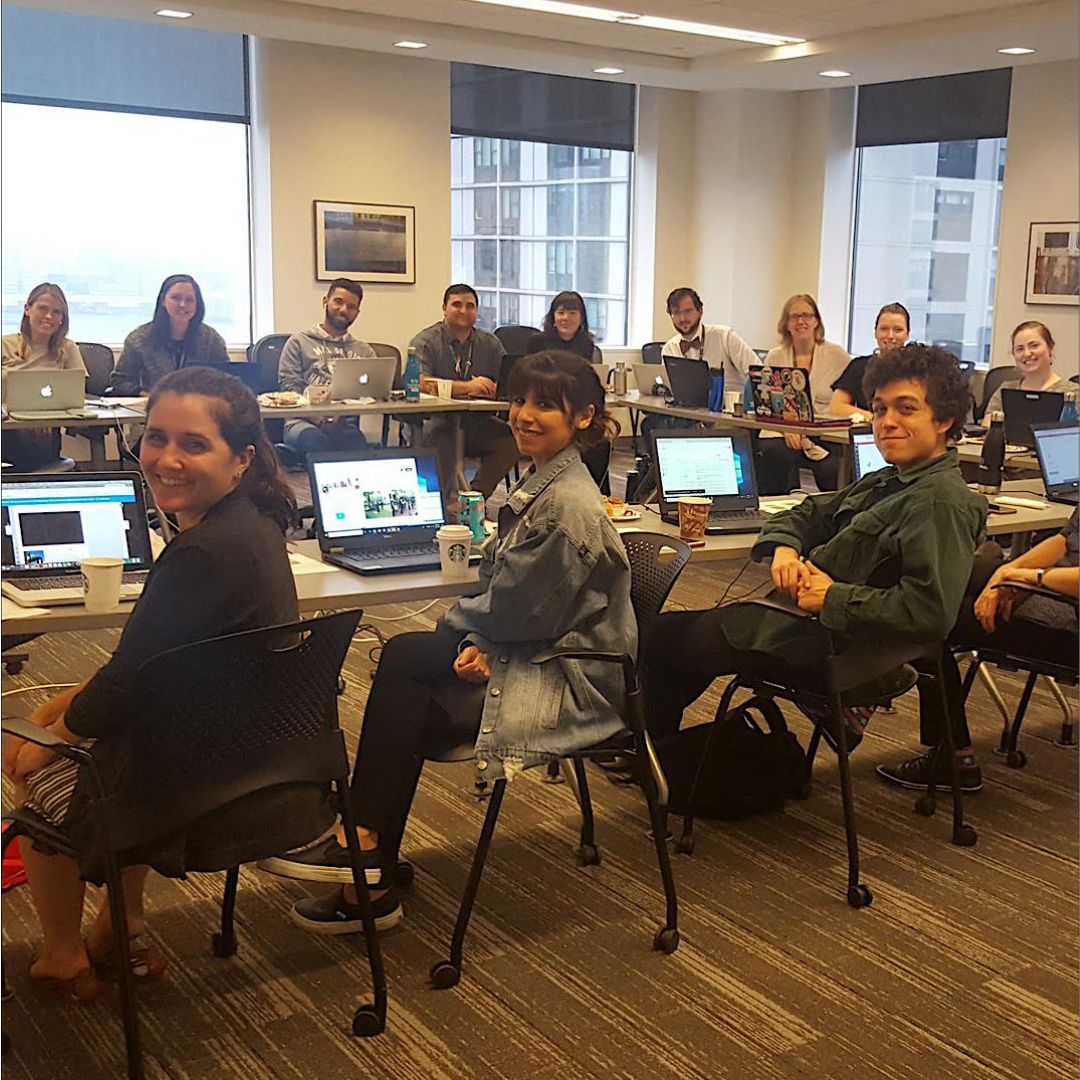Rescue & Recovery: In Their Own Voices with Bridget Gormley
Rescue & Recovery: In Their Own Voices with Bridget Gormley
- August 29, 2022

Bridget Gormley at a screening of her film "Dust" with members of the FDNY
Our ongoing Q&A series "In Their Own Voices" — created to highlight the diversity and previously unimaginable undertaking of the 9/11 rescue and recovery community — continues this month with filmmaker and advocate Bridget Gormley, whose firefighter father William (Billy) died in 2017 from lung and bladder cancer caused by exposure to toxins at at Ground Zero.
Where were you on 9/11?
I was at school in Marine Park in Brooklyn. I was in the 5th grade. I remember it was a beautiful day and the classroom windows were wide open. We had no idea that something happened miles away in lower Manhattan, but the kids in class started to smell a stench coming through the windows – we would later learn it was from the World Trade Center site. Soon, kids were getting pulled from class to go home with their families. By the time school let out, only a handful of kids remained, including me.
When my mother picked me up, I learned what had happened, and that my dad, a New York City firefighter with Engine 310/Ladder 174, was responding. In fact, many of the kids at the school were the sons and daughters of cops and firemen — the entire student body was impacted.
What role did your father play in the rescue and recovery efforts?
In the months after 9/11, my dad Billy Gormley worked the rescue and recovery effort at Ground Zero. Despite the emotional and physical scars that the attacks and his time down at the site left on him and his fellow first responders, I know my dad would have done it all over again.
Can you describe the bond between you and the rest of the rescue and recovery community?
The 9/11 victim community is a one no one ever wants to be a part of. To be in it means you have experienced immense pain, suffering, and loss. However, this is a community unlike any other. My dad always told people that he had the greatest job in the world. He felt that his fellow firefighters were an extension of his family. So, when he died from cancer, my "family" grew exponentially. The FDNY and the community of responders helped alleviate the pain and suffering my family were going through. In this community, everyone looks out for each other because the sacrifice of the job is always present.

Gormley as a child with her father
How did your father's time at Ground Zero affect his health?
While my dad survived the day of 9/11, the toxic dust lingered over his shoulder for 16 years. In January 2017, he was diagnosed with bladder cancer. Six months later, he passed away. His cancer was directly linked to his exposure to the toxic chemicals present at Ground Zero.
For my dad, his diagnosis was unwelcome, but anticipated. For our family, however, it was a complete shock. He rarely talked with me and my brothers about 9/11 and his time at Ground Zero, so we had no idea. After his death, I needed to know more about the conditions at Ground Zero and what my dad could never bring himself to tell us. In searching for answers, I discovered tens of thousands of individuals who share my dad's fate — men and women who had been in lower Manhattan breathing in toxins, who are now suffering or have died from related illnesses. Once the magnitude and severity of the situation became apparent, I began to document it.
Tell us about the work you're doing to keep his legacy alive?
I now dedicate my life to telling this story. My documentary, DUST: The Lingering Legacy of 9/11, highlights the tragedy of people who relive 9/11 daily by living with its deadly legacy. While their lives were spared on 9/11, they now face a mounting health crisis. It serves as a reminder of the ongoing human toll of 9/11. As thousands continue to die, survivors are forced to fight political and legal battles for recognition and compensation.
What would you like to share with those born after 9/11?
It is important for them to learn about the terrorist attacks beyond one day a year. We must also teach students about what happened after 9/11, including the nine-month rescue and recovery effort, and acknowledge the hundreds of thousands of people dealing with its health consequences. Recognizing these lingering effects and all those impacted is crucial to educating the next generation.
Anything else you'd like to add?
The documentary DUST reminds us that the impacts of the tragedy are still painfully present. While the 9/11 narrative has always focused on explaining what happened, DUST makes us consider what is happening now, what we've learned, and how we help those who are suffering.
Compiled by Caitlyn Best, Government and Community Affairs Coordinator
Previous Post
British Victim Advocate Who Survived Terrorist Attack Takes Inspiration from 9/11 Community

After the 2017 Westminster Bridge terrorist attack in London left him seriously injured, Travis Frain became an advocate for victims of similar past — and future — acts of violence. In this guest blog post, he explains how terrorism reshaped his perspectives and the ways the 9/11 community inspires his advocacy works.
Next Post
Join the Conversation: 9/11 Memorial & Museum Anniversary in the Schools

In her guest post, Education Specialist Nicole Torres goes behind-the-scenes at our annual Digital Learning Experience live chat and talks about why answering students' and teachers' questions means so much to her.